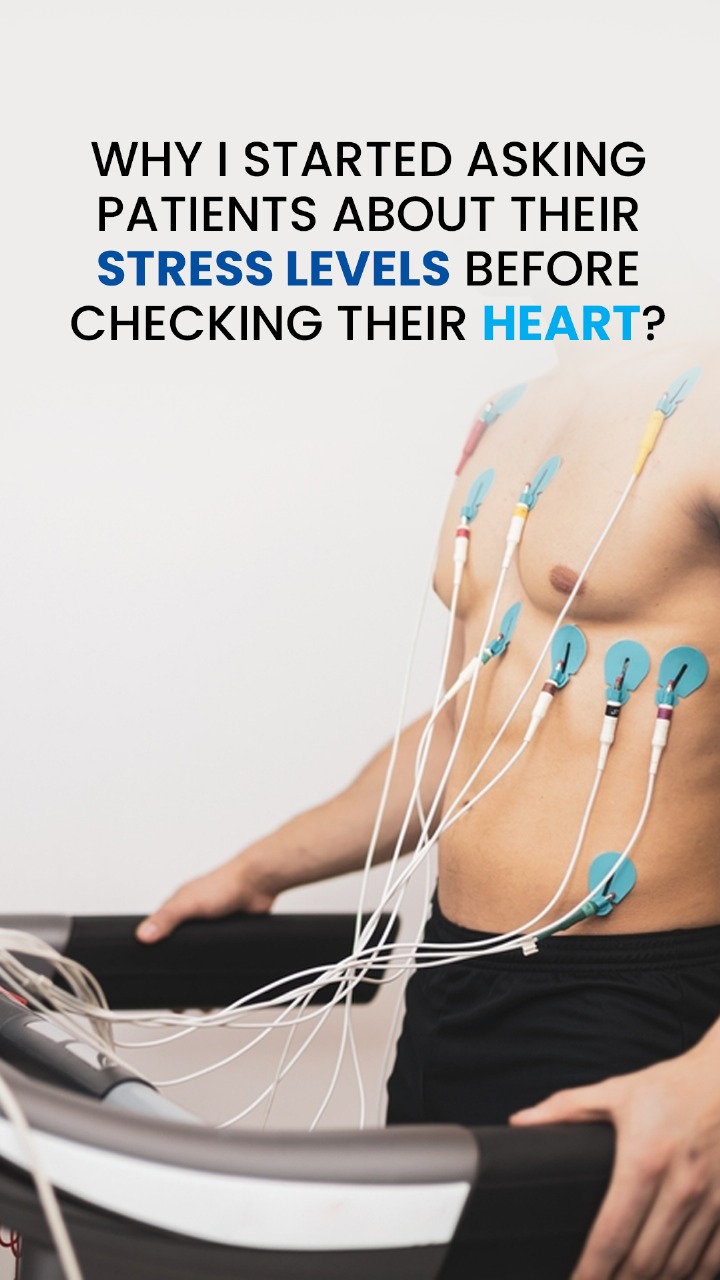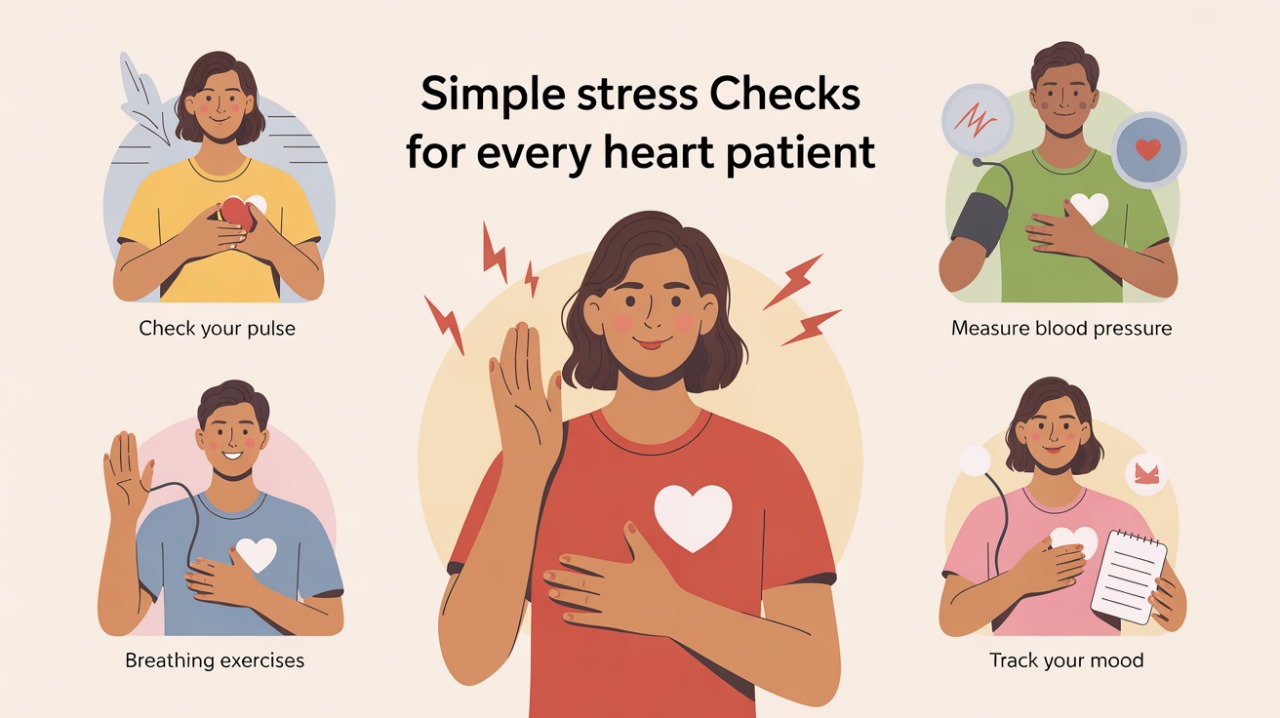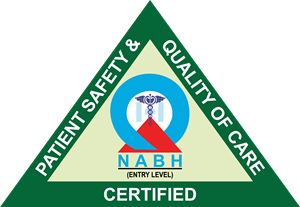Jinkushal Cardiac Care & Superspeciality hospital


Why I started asking patients about their stress levels before checking their heart
The turning point in my consultations came the day I realized that many “heart symptoms” were actually stress signals wearing a cardiac mask. That’s why, before I place a stethoscope, I now ask about stress, sleep, work pressure, and family load. This change began with one simple truth: Why I Started Asking Patients About Their Stress Levels Before Checking Their Heart is because stress can be the silent amplifier of every cardiac complaint.
I’ve seen countless people rush in with chest tightness, fluttering beats, and pressure headaches yet their ECGs and scans were normal. When we explored their daily stressors, the real picture emerged: a heart reacting to relentless mental strain. Addressing stress first has made my exams more accurate and my patients feel deeply heard.
If you’re weighing care options around Thane, it helps to know where to turn; many people search for the best hospital in Thane West when what they really need first is a calm, thorough conversation about stress and heart symptoms.
Why Stress Matters as Much as Blood Pressure
Stress isn’t just a feeling it’s a biological cascade. Cortisol and adrenaline rise, your heart rate climbs, blood vessels constrict, and blood pressure nudges upward. Over time, this can fuel inflammation, disrupt sleep, and make your heart’s electrical system more irritable, increasing palpitations and perceived chest discomfort.
Clinically, I often notice tight chest muscles, shallow breathing, and a rapid pulse in anxious patients. They describe “electric” sensations, throat tightness, lightheadedness, or a constant urge to sigh. These are real, physical effects just not always from blocked arteries. It’s why cardiology must listen to life as closely as it listens to the heart.
Community-wide awareness is rising, and I’m encouraged by how many families discuss heart and mind together when they visit hospitals in thane for preventive checkups.

Real-World Observations from My Clinic
Case 1 (anonymized): A 38-year-old professional reported daily palpitations and chest heaviness by evening. Tests were normal. He was leading a team through constant deadlines, sleeping five hours, and skipping meals. We worked on structured breaks, diaphragmatic breathing, and sleep hygiene and within weeks, the “cardiac” symptoms fell sharply.
Case 2 (anonymized): A 46-year-old homemaker had intermittent chest pain and breathlessness after caregiving stress intensified at home. With gentle counseling, paced walking, and short, guided breathing sessions, her chest pain episodes dropped without any cardiac intervention.
It’s natural for people with confusing symptoms to type best hospital near me and race to urgent care; but as these stories show, sometimes the heart needs stress relief as much as it needs tests.
The Science Behind Stress and Heart Disease
Research consistently shows that chronic stress raises the risk of hypertension, arrhythmias, and adverse cardiac outcomes. Stress doesn’t work in isolation; it often travels with poor sleep, elevated blood sugar, and low activity, multiplying cardiovascular risk. That’s why modern cardiology increasingly integrates psychosocial screening alongside traditional vitals.
When patients learn simple breathing and relaxation techniques, their autonomic balance improves: heart rate variability can stabilize, and perceived chest discomfort often eases. This is not “all in your head” it’s physiology responding to lifestyle changes. The most powerful treatment plans blend medication when needed with stress-aware daily routines.
For those seeking discreet, personalized care pathways, a best private hospital in thane should also feel like a calm space to talk about life, not just lab values.
Why I Changed My Consultation Approach
I now begin by asking: How are you sleeping? What is the toughest hour in your day? Do you feel supported at home and work? These questions unlock details that labs can’t capture. By understanding stress first, we avoid unnecessary tests, triage urgency accurately, and build trust because patients feel seen, not rushed.
Over time, I’ve watched this approach reduce repeat ER visits for non-cardiac chest pain and improve adherence to lifestyle plans. It’s a reminder that medicine is both science and story. Your story informs the science, and the science improves your story.
If you expect transparency, empathy, and clear next steps, that’s exactly what you should demand from any top hospital in Thane offering heart consultations.
Simple Stress Checks for Every Heart Patient

Try these quick self-checks each week:
- On a scale of 1–10, how tense do you feel right now? What was your highest stress moment today?
- Did you sleep 7–8 hours last night? If not, why?
- How many minutes did you walk or move today?
- Are you relying on caffeine or sugar for energy?
- Do you have at least one daily ritual that calms you?
Fast calming routine (3 minutes):
1) Sit upright, relax your shoulders.
2) Inhale slowly through the nose for 4 seconds.
3) Hold for 2 seconds.
4) Exhale gently through pursed lips for 6 seconds.
5) Repeat 6–8 cycles, focusing on longer exhales.
When to seek help:
- Chest pain that is pressure-like, radiates to the arm/jaw/back, with sweating or nausea seek emergency care.
- New, persistent palpitations, fainting, or breathlessness book a cardiology review promptly.
- Ongoing anxiety, low mood, or insomnia add a psychologist/psychiatrist to your care team.
For specialist guidance on preventive cardiology, you can book with the Best Cardiologist in Thane at Jinkushal Cardiac Care.
What You Can Do: Managing Stress Before It Manages Your Heart
Lifestyle anchors:
- Sleep: Protect a consistent window; keep the bedroom cool, dark, and screen-free for 60 minutes before bed.
- Activity: Aim for 150 minutes/week of moderate exercise (walking, cycling) plus 2 days of light strength work.
- Food: Favor fiber-rich plants, quality proteins, and healthy fats; watch hidden salts and refined sugars.
- Breath and mind: 5–10 minutes of guided breathing or mindfulness daily is realistic and potent.
Emotional well-being:
- Set micro-breaks (5 minutes every 60–90 minutes) to downshift your nervous system.
- Name your stressor (“deadline,” “conflict,” “uncertainty”) labeling reduces intensity.
- Share the load: a honest conversation can be cardioprotective.
- Track triggers in a simple journal; celebrate small wins weekly.
If you ever face sudden chest pain or alarming symptoms, don’t hesitate to head to the Best Emergency Care Hospital in Thane for immediate evaluation.
For planned checkups and long-term prevention, choose institutions known for continuity and calm, such as a best hospital in Thane that prioritizes both diagnostics and daily-life counseling.
Many first visits begin with a straightforward, map-assisted appointment; you can locate me easily as a Heart Doctor in Thane and plan your route without stress.
Finally, whether you walk into a hospital in thane or my clinic at Jinkushal Cardiac Care, remember: your heart listens to your life. By asking about stress first, we often protect patients from unnecessary panic, clarify true cardiac risk, and create space for healing that lasts.

